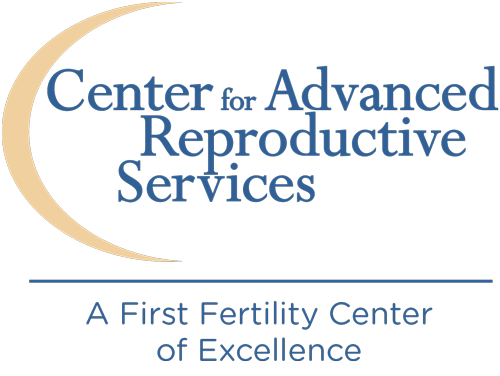- Why Choose Us
Success Stories
Our Facilities
Academics/Research
- Start Your Journey
- Family Building Programs
Integrated Health & Wellness
- News & Video
Video Library
News + Events
Contact Us
- Patient Portal
Online Payments
- For Physicians
The Center for Advanced Reproductive Services is a part of the First Fertility family of centers. Learn More About The Center.
Gestational Carrier Program
While there are many couples who have trouble conceiving a pregnancy, some couples are able to conceive, but experience fertility problems that prevent them from carrying a pregnancy to term. In cases like this, couples can utilize what is known as a gestational carrier. During this process, the intended parents undergo an IVF cycle, where we stimulate the mother’s ovaries with hormones and retrieve her eggs. The mother’s eggs and father’s sperm are used to produce embryos. The resulting embryos are then transferred into the uterus of the gestational carrier – a woman who becomes pregnant with the embryos of another couple. She is given hormones to synchronize her uterus and support a pregnancy. She carries and delivers a child for a couple who cannot carry their own pregnancy. The gestational carrier has no genetic link to the fetus that she carries.
Who is a candidate for Gestational Carrier services?
The Center physicians will determine if a gestational carrier is clinically indicated, and then advise on how to proceed. Candidates for this special program include any women who cannot successfully carry a pregnancy to term. Clinical indications for gestational carrier services are:
- Women who have had their uterus removed but retain one or both ovaries
- Uterine factors such as fibroids, severe scar tissue, DES exposure, or congenital anomalies that cannot be surgically corrected
- Serious medical conditions in which a pregnancy would put a mother’s health at a significant risk
How does a Gestational Carrier work?
Prior to initiating a cycle, the parents and their carrier undergo medical, psychological and legal counseling. After that is completed, they attend a teaching class. Some couples have an identified gestational carrier they have already selected. Other couples use a service we have available that screens and contracts a carrier for them. In this second scenario, the carrier is compensated for her time and effort. The carrier uses medication to prepare her uterus, while the parents begin their stimulated IVF cycle. The couple’s eggs and sperm are used to produce embryos that are then transferred in to the uterus of the gestational carrier. If a pregnancy is achieved, the carrier will be followed for about 6 weeks with us, and then discharged to an obstetrician to continue the prenatal care.
What are the success rates for the Gestational Carrier Program?
For more information about gestational carrier success rates at The Center, please click here.
How do I get more information about the Gestational Carrier Program?
To make an appointment or for more information about our Gestational Carrier Program please call The Center for Advanced Reproductive Services at 844-HOPEIVF.
ASRM Gestational Carrier Fact Sheet, click here.

